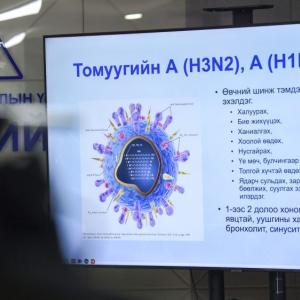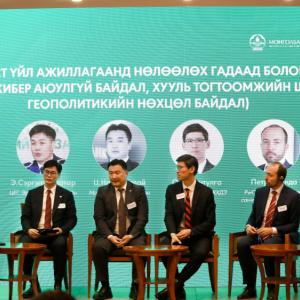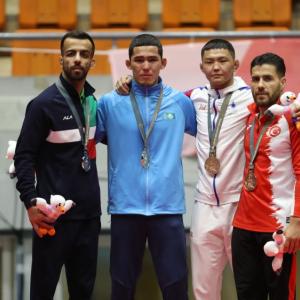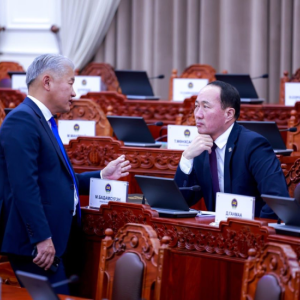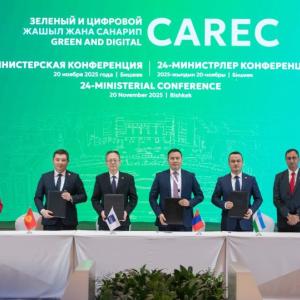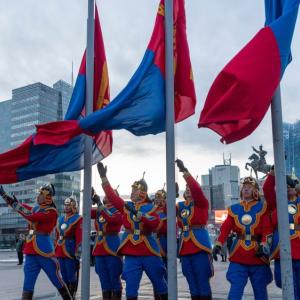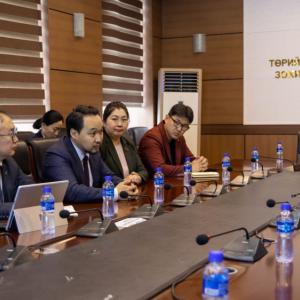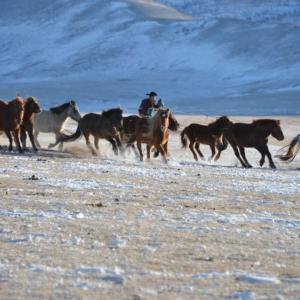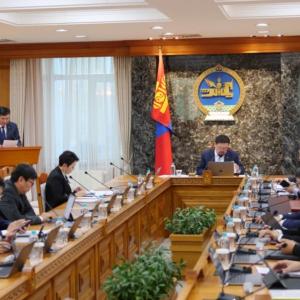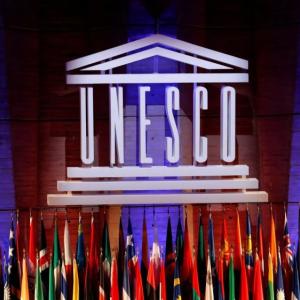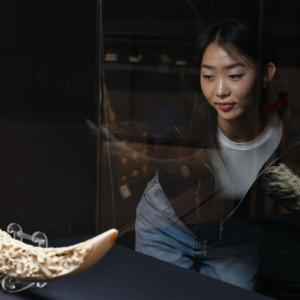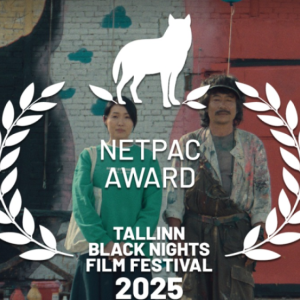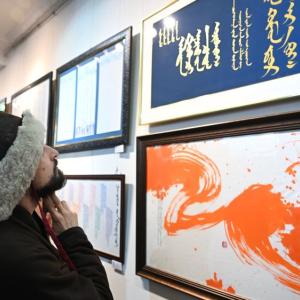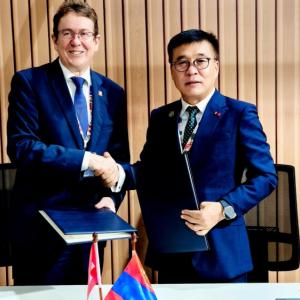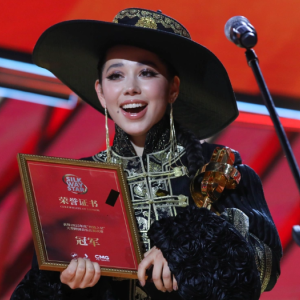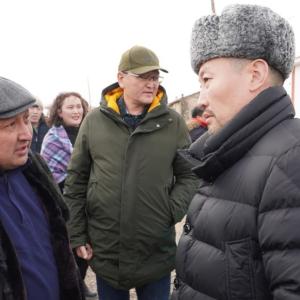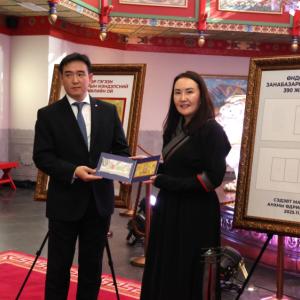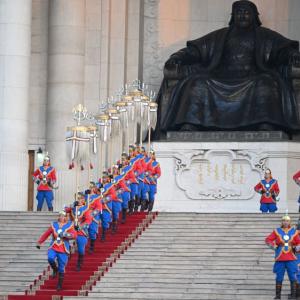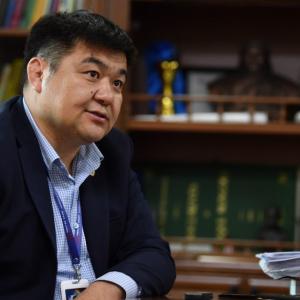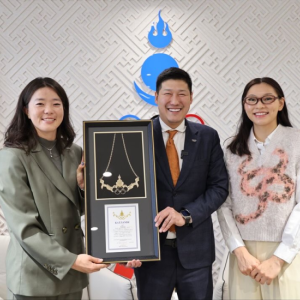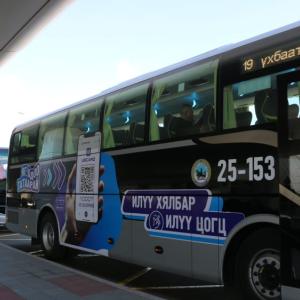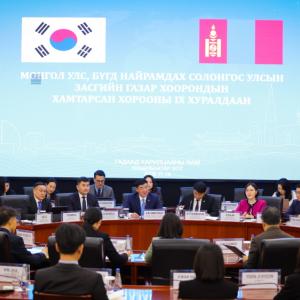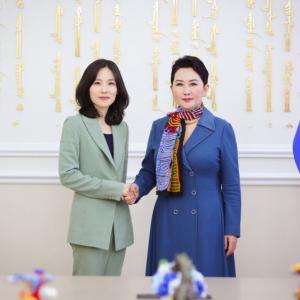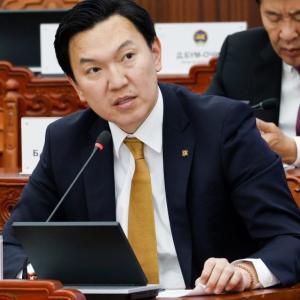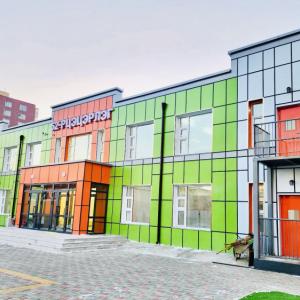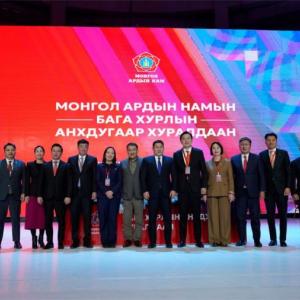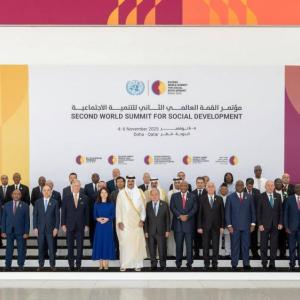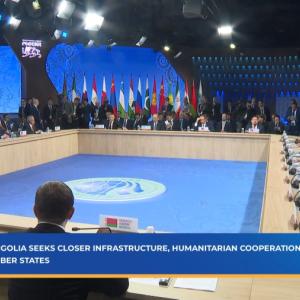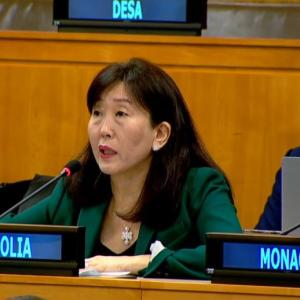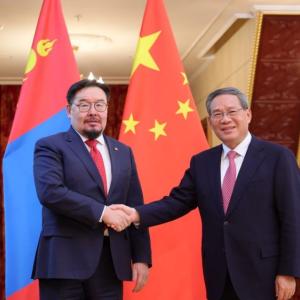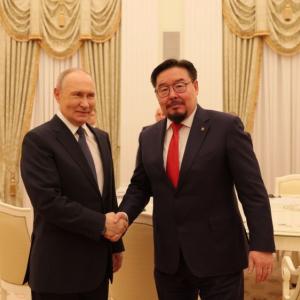Conference Takes Place Reviewing the Contributions of the Constitution of Mongolia and India to Nation Building
TO THE 70TH ANNIVERSARY OF THE ESTABLISHMENT OF DIPLOMATIC RELATIONS BETWEEN MONGOLIA AND THE REPUBLIC OF INDIA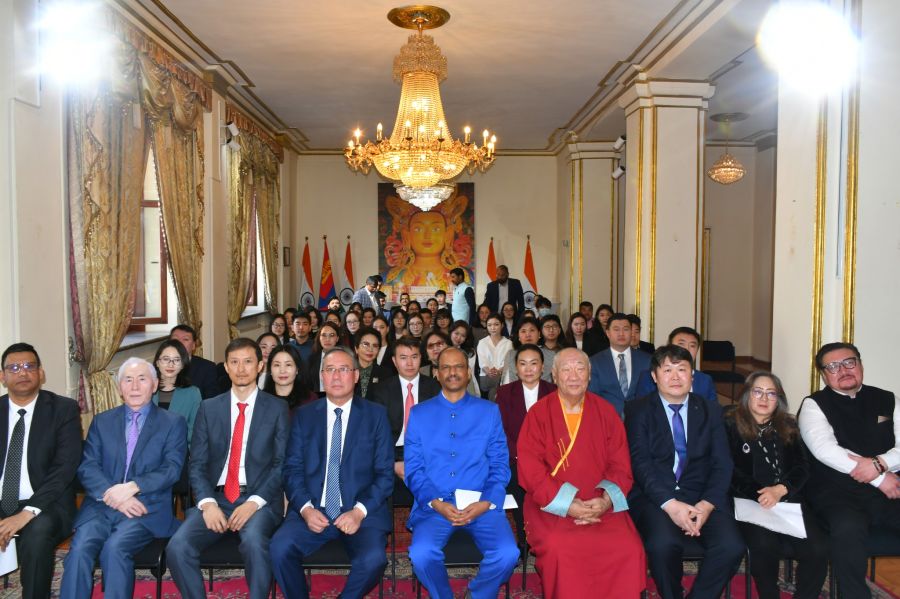
Ulaanbaatar, April 14, 2025 /MONTSAME/ On the occasion of the 134th anniversary of the birth of Dr. Babasaheb Ambedkar, the Chief Architect of the Constitution of India, the Embassy of India in Mongolia, in collaboration with the Constitutional Court of Mongolia, Institute of Constitutional Law of the National University of Mongolia, and the Centre of Indian Studies in Mongolia, organized a Conference “Contributions of the Constitutions of Mongolia and India to Nation Building” on April 14, 2025, at the Embassy of India in Ulaanbaatar.
The Conference, also marking the 75th anniversary of the adoption of India’s Constitution and the 70th anniversary of the establishment of diplomatic relations between Mongolia and the Republic of India, brought together Chief Justice of the the Constitutional Court of Mongolia Bayasgalan Gungaa, Constitutional Court Justice Gangabaatar Dashbalbar, Director of the Center for Indian Studies Dr. Professor O. Nyamdavaa, President of the Asian Buddhist Conference for Peace Khambo Nomun Khan D. Choijamts, President of the Indian Council for Cultural Relations' Mongolian Alumni Association Kh. Chinbat, Head of the Mongolia-India Healthcare Cooperation Center Dr. N. Jambalmaa, Director of the Institute of Constitutional Law at the National University of Mongolia (NUM) Professor Kh. Selenge, academics, law faculty students, and Indian nationals residing in Mongolia. During the event, participants laid wreaths before a portrait of Dr. Babasaheb Ambedkar to pay their respects.
A video message from Minister of Parliamentary Affairs of the Republic of India Shri Kiren Rijiju was presented at the conference. In his remarks, Minister Shri Kiren Rijiju noted that Dr. Ambedkar regarded the Constitution as "not a mere lawyer's document, it is a vehicle of life, and its spirit is always the spirit of the age," and that his vision continues to guide India’s democratic journey. The Minister also underscored that this year’s celebration of 70 years of diplomatic relations between India and Mongolia highlights the two countries’ strategic partnership, spiritual kinship, and shared Buddhist heritage. Minister Shri Kiren Rijiju further emphasized that India values its friendly relationship with Mongolia and looks forward to continued cooperation for peace, development, and the prosperity of the peoples of the two countries.
Chief Justice of the Constitutional Court of Mongolia Bayasgalan Gungaa remarked that the Constitution of India is one of the most comprehensive Constitutions in the world. The Father of the Constitution of Mongolia Chimid Byaraa said that the Constitution is the motherland held in the palm, while Dr. Babasaheb Ambedkar, the Father of the Constitution of India, said "the Constitution is not a mere lawyer's document, it is a vehicle of life, and its spirit is always the spirit of the age." Chief Justice Bayasgalan proposed further cooperation between Mongolia and India in the field of legal science.
Ambassador Extraordinary and Plenipotentiary of the Republic of India to Mongolia Atul Malhari Gotsurve highlighted that India and Mongolia, as democratic countries, greatly value the role of their Constitutions in nation-building. The Ambassador noted that democracy is a central pillar of the friendly relations between India and Mongolia. Paying tribute to Dr. Ambedkar’s extraordinary contribution as Chair of the Drafting Committee, Ambassador Gotsurve cited Dr. Ambedkar’s words that “Article 32 is the soul of the Constitution.”
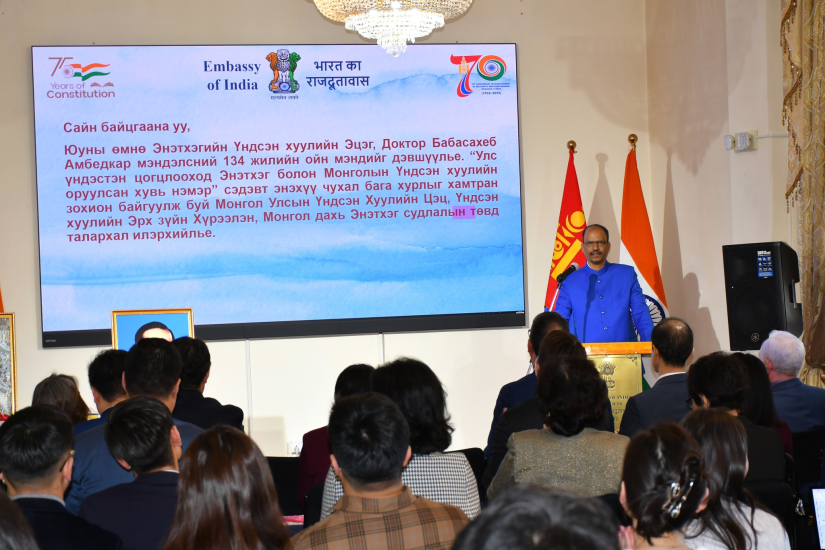
Dr. Professor O. Nyamdavaa, former Ambassador Extraordinary and Plenipotentiary of Mongolia to the Republic of India, Indian studies scholar, and Director of the Center for Indian Studies, noted the history of Mongolia-India relations and proposed seeking new areas of mutually beneficial cooperation in fields such as artificial intelligence, biotechnology, and space exploration.
The Conference was co-organized by the Embassy of India in Mongolia, the Constitutional Court of Mongolia, the Institute of Constitutional Law at the National University of Mongolia, and the Center for Indian Studies in Mongolia.
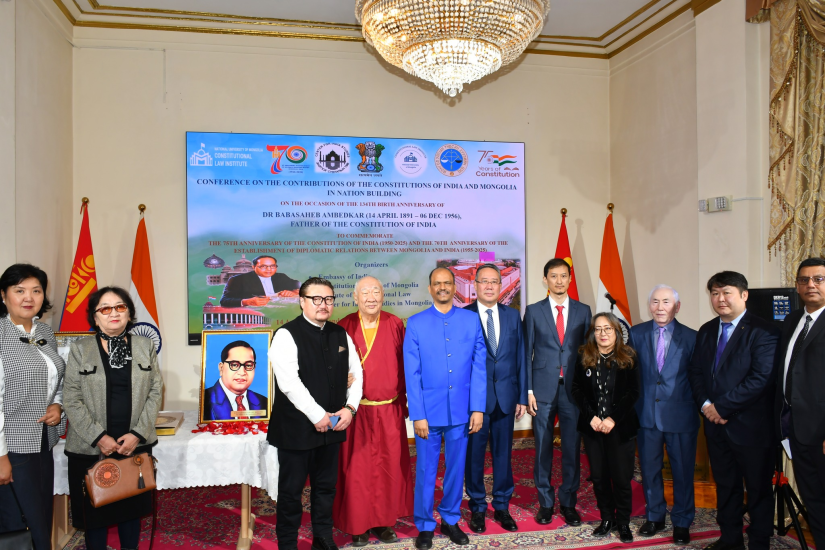
 Ulaanbaatar
Ulaanbaatar












